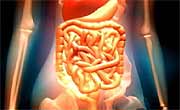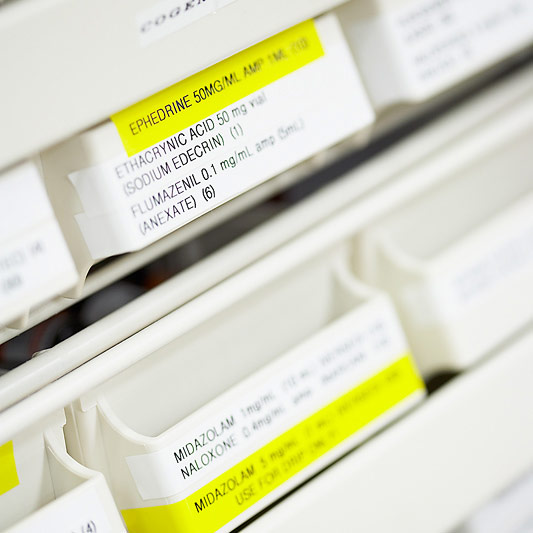
WEDNESDAY, Aug. 10 (HealthDay News) — An experimental drug called linaclotide can help reduce the symptoms of chronic constipation, according to new research funded by the drug maker.
In two randomized 12-week trials, about 21 percent of participants taking the drug had at least three spontaneous bowel movements a week, compared to no more than 6 percent of those taking placebo, the study results showed.
“People who received the drug had improvement in symptoms, and the treatment was generally well-tolerated,” said the study’s lead author, Dr. Anthony J. Lembo, an associate professor of medicine at Harvard Medical School and director of the GI Motility Center at Beth Israel Deaconess Medical Center in Boston.
The study, which was funded by Ironwood Pharmaceuticals, was published in the Aug. 11 issue of the New England Journal of Medicine.
Between 12 percent and 19 percent of Americans have experienced chronic constipation, according to background information in the article. People with chronic constipation generally have fewer than three bowel movements a week, and the bowel movements they have may be hard, lumpy and difficult to pass. To be classified as chronic, these difficulties generally have to occur for at least three months, although Lembo said that most of the people enrolled in the trials had experienced chronic constipation for years.
A total of 1,276 people with chronic constipation were enrolled. The study volunteers came from 204 clinical centers in the United States and eight in Canada.
Each trial had approximately 600 people who were randomly placed into one of three groups: placebo, 145 micrograms of linaclotide daily, or 290 micrograms of linaclotide daily. Both trials lasted 12 weeks, but the second one had an additional four-week randomized drug withdrawal period as well.
The goal of the study was three or more spontaneous bowel movements a week.
For the 145 microgram dose, the researchers found that 21.2 percent in the first trial and 16 percent of people in the second achieved the goal. For the 290 microgram dose, the results were 19.4 percent and 21.3 percent respectively. Only 3.3 percent and 6 percent of those on the placebo met the study’s goal.
In addition to achieving the study goal, the drug helped reduce abdominal discomfort, bloating, and the severity of constipation, according to the researchers.
Between 57 percent and 65 percent of the study’s participants said they were “quite or very likely” to continue the treatment at the end of the study.
The most significant side effect experienced was diarrhea, according to Lembo. About 14 percent to 16 percent of people had diarrhea, but Lembo said that only around 4 percent dropped out due to that side effect.
But Lembo said that he wasn’t sure that everyone was helped by linaclotide. “Chronic constipation is a pretty heterogeneous disorder with different causes. Some cases are related to pelvic floor issues, where the rectal area doesn’t relax properly, and I wouldn’t expect this medication to be very effective for that type of disorder,” he said.
Linaclotide’s main mechanism of action is to stimulate intestinal secretions, which wouldn’t have an effect on rectal muscles. Lembo said the researchers tried to exclude people with constipation related to pelvic floor issues, but that these issues haven’t always been diagnosed.
“People who suffer from chronic constipation or irritable bowel syndrome with constipation do need more medication choices,” said Dr. Roshini Rajapaksa, a gastroenterologist at New York University Langone Medical Center in New York City. “Even though linaclotide was an improvement, only one in five people would have a result. This is probably something we would offer if other options had failed,” she added.
Rajapaksa recommended that anyone with constipation should make some lifestyle changes — adding more exercise, water and fiber in their diet. But, she said, don’t add fiber to your diet too quickly, because too much fiber too soon can cause gas and bloating, and may even worsen constipation.
If lifestyle changes don’t help, she advised talking to your doctor about other treatment options.
More information
Learn more about constipation from the U.S. National Institute of Diabetes and Digestive and Kidney Diseases.

